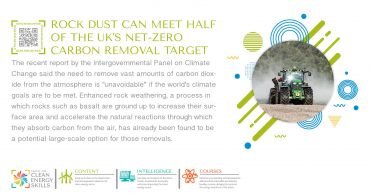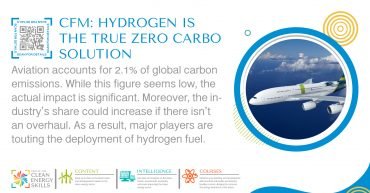The recent report by the Intergovernmental Panel on Climate Change said the need to remove vast amounts of carbon dioxide from the atmosphere is “unavoidable” if the world’s climate goals are to be met. Enhanced rock weathering, a process in which rocks such as basalt are ground up to increase their surface area and accelerate the natural reactions through which they absorb carbon from the air, has already been found to be a potential large-scale option for those removals.
The world is changing. We are experiencing higher temperatures, more intense and frequent natural disasters, and rising sea levels. While many still debate climate change, the transportation sector has recognized its role and is moving toward a more sustainable future. From fuel efficiency and greenhouse gas reduction goals to hydrogen-powered aircraft and battery-electric trucks, sustainable transportation technologies are continuing to advance.
Aviation accounts for 2.1% of global carbon emissions. While this figure seems low, the actual impact is significant. Moreover, the industry’s share could increase if there isn’t an overhaul. As a result, major players are touting the deployment of hydrogen fuel.
Mobile operators can also enact positive change for their customers by helping achieve energy savings and thus reducing carbon emissions through digital transformation with 5G. ABI Research finds that by conservative estimates, 5G deployments can reduce energy consumption by almost 290,000 Terawatts (TW) of energy by 2030 across global manufacturing, transportation, consumer and logistics sectors.
In 2020 Holy Cross Energy, a utility cooperative, established its “100×30” plan to provide 100% renewable energy to its 43,000 members by 2030. Holy Cross is in development on a number of solar projects to try and reach this goal.




